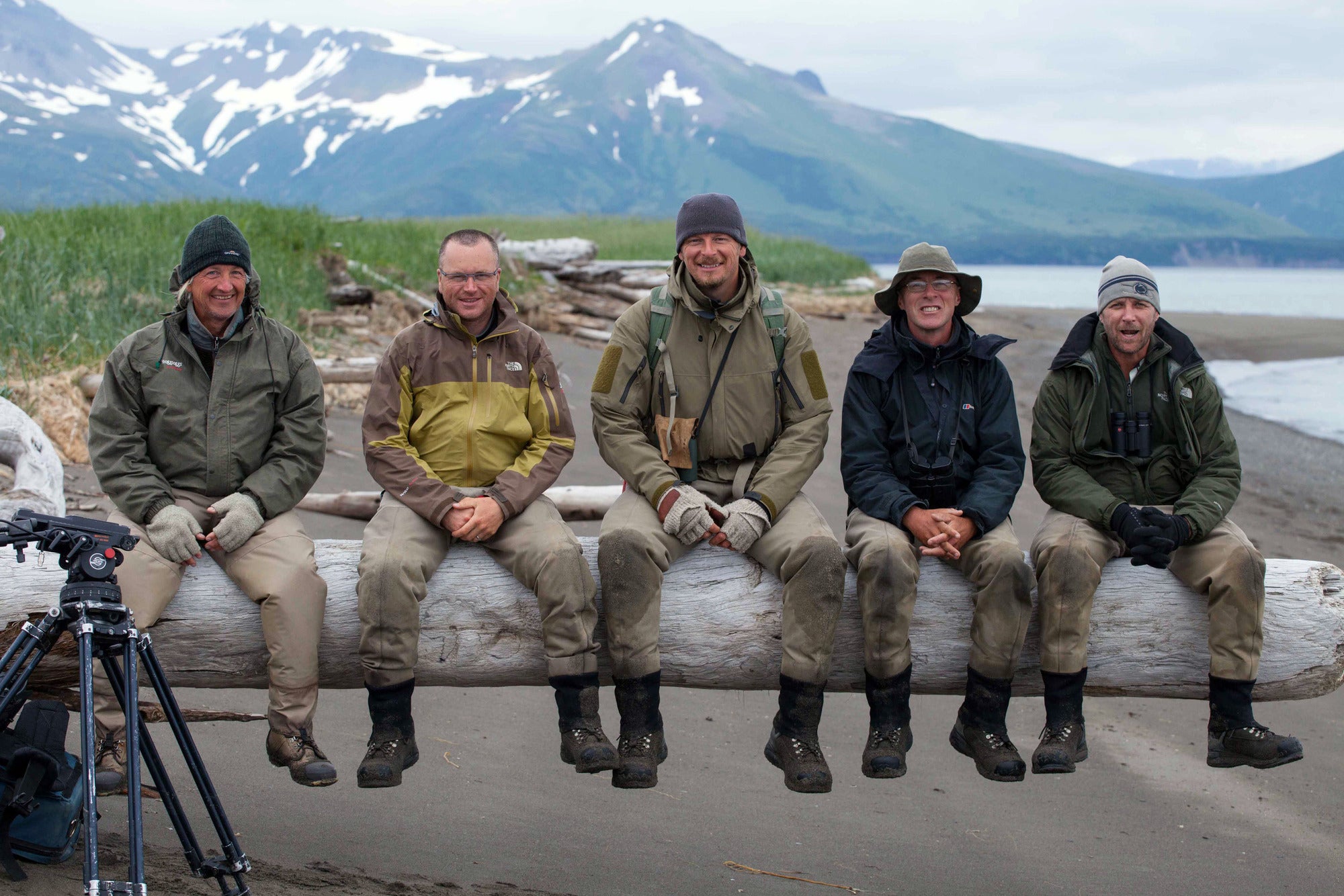TV review: Great Bear Stakeout (BBC1) opened my eyes to sociopaths in fun-fur overcoats
Licence to Kill, BBC3

Your support helps us to tell the story
From reproductive rights to climate change to Big Tech, The Independent is on the ground when the story is developing. Whether it's investigating the financials of Elon Musk's pro-Trump PAC or producing our latest documentary, 'The A Word', which shines a light on the American women fighting for reproductive rights, we know how important it is to parse out the facts from the messaging.
At such a critical moment in US history, we need reporters on the ground. Your donation allows us to keep sending journalists to speak to both sides of the story.
The Independent is trusted by Americans across the entire political spectrum. And unlike many other quality news outlets, we choose not to lock Americans out of our reporting and analysis with paywalls. We believe quality journalism should be available to everyone, paid for by those who can afford it.
Your support makes all the difference."You'll never think of bears in the same way again," promised Billy Connolly at the beginning of Great Bear Stakeout. Oh, come off it, Billy, I thought. That's just boilerplate puff, isn't it? I felt pretty confident that what I thought about bears before the programme began – not to be crossed lightly, big fans of salmon, touchy parents – was broadly going to be what I thought of them when it ended.
But I was wrong. I now think of bears as sociopaths in fun-fur overcoats – actors in a soap opera so bleak and unremitting that it makes EastEnders look like Balamory. And if you're going to object that this is improperly anthropomorphic, I can only say that Billy and the rest of them started it, what with all that talk about "the Doris Days and Marilyn Monroes of the bear world".
It took a while for the rowdy teenager in me to settle down. First, there was the mild hyping of hazard that is often obligatory in these things. The team, we were told, would camp out in Alaska, "with only an electric fence for protection". Only a 5,000-volt electric fence? Are you mad? But they aren't, apparently, because a little later they were filming close-ups with their "only protection... a can of bear pepper spray". You began to wonder what else might be covered under "only" – an assault rifle? An elephant taser? It didn't exactly help that Chris, the lead guide, has a startling resemblance to Julian Barratt from The Mighty Boosh, whose character was prone to solemn utterances about risk. "Nowhere else can you get this close to grizzlies and live to tell the tale," Chris said at one point and it was virtually impossible not to hear it as the feed to a punchline.
The footage stifled the giggles though. First of all when a bear called Parsnip managed to drown one of her cubs in front of the helplessly watching film crew and then later when Van – a bear the size of a pick-up truck – turned on a female who'd been sizing him up for mating and killed her. As Van rewarded himself by copulating with Alice, a coquettish little tramp who'd been playing the field until then, another bear arrived to eat Van's victim, and tear chunks out of anyone who tried to make him share this windfall. Their oral hygiene leaves a lot to be desired too, judging from the footage secured when one bear tried to eat one of the remote cameras the team had left pegged out in the wilderness. So, yes, the cubs are as cute as ever, but I'll never think of bears in quite the same way again.
In human society, Parsnip would have been declared an unfit mother and had her cubs taken into care. But there are abdications of parental care that don't even register as a scandal, so habituated have we become to the risks. Licence to Kill highlighted one of them – our willingness to let very young drivers climb into cars, where they kill themselves and others with dreadful frequency. Presented by Sophie Morgan, who left herself in a wheelchair after flipping her own car at the age of 18, it was an often heartbreaking film, focusing on the misery that follows road-traffic accidents and the terrifying insouciance of young people about their own survival.
Morgan talked to both victims and drivers, sometimes from the same collision, as in one case involving the young footballer Courtney Meppen-Walter. The disproportion between relatively short jail terms for dangerous driving and the life-destroying consequences of it was a consistent theme, though Morgan herself thought that education was a better solution than legal restrictions on young drivers, citing a successful Suffolk scheme that claimed to have brought about a 70 per cent reduction in fatalities. I wonder. The risk, after all, isn't a disincentive. It's the attraction.
Join our commenting forum
Join thought-provoking conversations, follow other Independent readers and see their replies
Comments